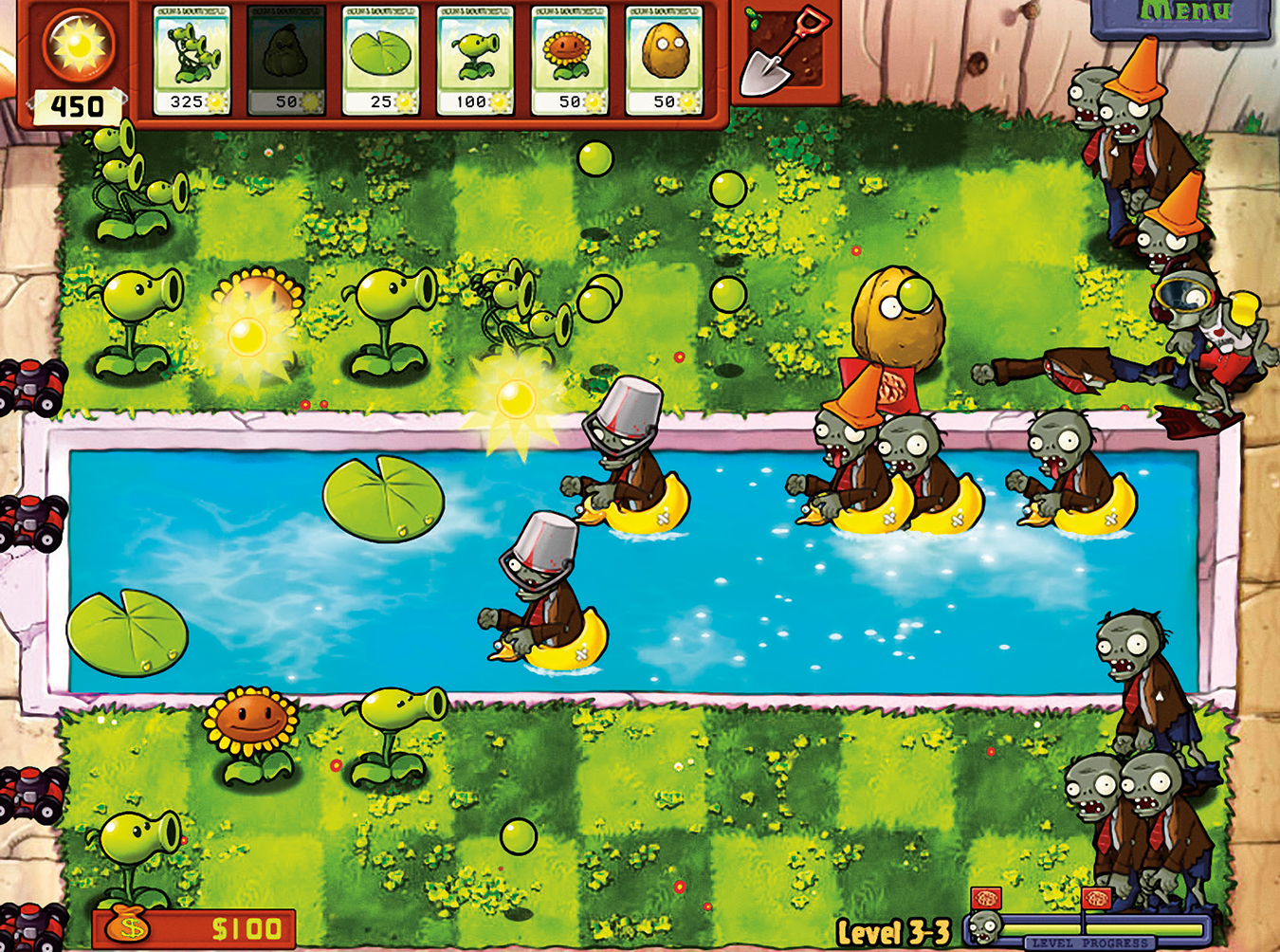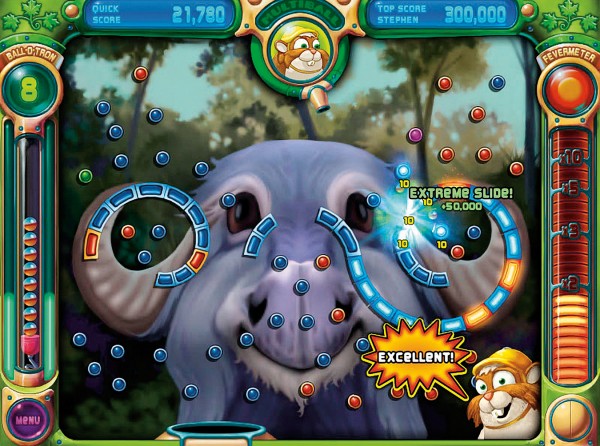PopCap Games
The casual gaming revolution.

They’re coming. The undead, that is. The only thing standing in their way: my garden.
Such is the premise behind the appropriately named Plants vs. Zombies, the latest in a string of best-selling video games by Seattle-based PopCap Games. Silly, simple, and about as difficult to put down as a fresh honey-glazed donut, the game pits a frightened homeowner (that’s you) against a rampaging horde of cartoon zombies with an insatiable appetite for grey matter. To help you fend them off: an army of pugilistic flora, including shooting peas, exploding potatoes, and a legion of lethal mushrooms.
Frivolous? That’s the point. As an example of the “casual gaming” revolution, Plants vs. Zombies isn’t meant to be overly taxing. Rather, it’s the perfect antidote to a hard day at the office or a dreary bus ride home, a short burst of lighthearted fun that requires neither deft hand-eye coordination nor hours of free time to enjoy.
Nor a significant financial commitment. There’s no doubt the price has been part of the game’s success; the iPhone iteration of the game (priced at $2.99) was the top-selling app within 24 hours of its release at Apple’s online store, and sold an impressive 300,000 copies in nine days. And PopCap’s other $2.99 megahit, Bejeweled 2, became the first app to hit three million unit sales. With numbers like these, you begin to understand that for PopCap, this business is anything but casual.
“When PopCap was founded, there was no such thing as the ‘casual game’ industry,” says Sukhbir Sidhu, PopCap’s studio director and head of game production. “Most games were created for very hardcore gamers. For everyone else, there was Solitaire and Tetris, and that was about it.”
As Sidhu explains, here was a potential niche for a fledgling gaming company looking to stand out from the crowd. Instead of creating action-packed, graphics-intensive shoot-’em-up games, the brain trust at PopCap turned its attention to simple, web-based puzzle and arcade games that could be enjoyed by anyone with a couple of minutes to spare.
This distinction has been the key to PopCap’s success. With the introduction of ever-more robust processors and graphics cards, gaming is now as much about immersing oneself in an alternate reality as it is about getting away from it all. In this way, PopCap’s games are something of a return to what Pong, Space Invaders, and other early games were arguably intended to be: a short-term escape from the pressures of everyday life.

A screenshot from PopCap Games’ Peggle.
All that said, it’s tough to define exactly what makes for a “casual” game. “The moniker is notoriously difficult to pin down,” Sidhu admits. “A typical casual gamer is more interested in a quick mental break than a long, in-your-face, do-or-die challenge like those found in most hardcore and console games. This doesn’t mean that many hardcore gamers don’t enjoy a casual game now and then—it just means that casual game players are, by definition, more casual in their approach to gaming.”
Indeed, the more you play Peggle, Bejeweled, or Plants vs. Zombies, the more you appreciate how fun casual can be. Instead of the intense and often dark experiences of Call of Duty, the Half-Life series, or World of Warcraft, PopCap games offer vivid colours, cartoon-like graphics, and a carefree, almost childlike humour. Fun is “the core ingredient in our games,” Sidhu says.
Fair enough. But distilling fun into a corporate directive is no easy task. “What the recipe is for fun is [not] easily answered,” says Sidhu. That hasn’t stopped the company from trying. “In the early days, [we] used to leave [our] mothers playing the games. If they were still having fun 30 minutes later, [we] took this as a good indicator of a title’s fun quota.”
And therein lies another intriguing feature of casual games. As much as gaming has become part of the culture of the North American male, for women, games have limited appeal. “For decades content has been geared to men,” Sidhu points out. “Games that have been made for women—‘pink’ games, games about baking, grocery shopping, or housecleaning—are repellent in a pandering, condescending sense.”
Casual games have changed that. In fact, PopCap’s research suggests as much as 72 per cent of those playing the company’s titles are female. What’s the secret? “In truth, we’re not entirely sure,” Sidhu admits. But he has a theory. “What [women gamers] want are games that are simply fun—not gender specific.” In practical terms, that means more co-operation and problem solving, and fewer explosions. “Casual games have unwittingly appealed to women because the games don’t try to overwhelm the player with explicit content, flashy graphics, and pressure-filled environments or situations. And perhaps most importantly, casual games do not focus on violence.”
Where does casual gaming go from here? “I think gamers can expect a lot,” Sidhu says. With the proliferation of smartphones, tablet computers, and handheld consoles, he believes casual games are undergoing an evolution. “The best is yet to come.”
Asked whether a sequel to Plants vs. Zombies is in the works, Sidhu’s answer is understandably coy. “We’re pretty tight-lipped about upcoming titles,” he says. “We get ideas from everywhere and anywhere.” Including, it appears, the backyard.
Top photo: a screenshot from PopCap Games’ Plants vs. Zombies.




